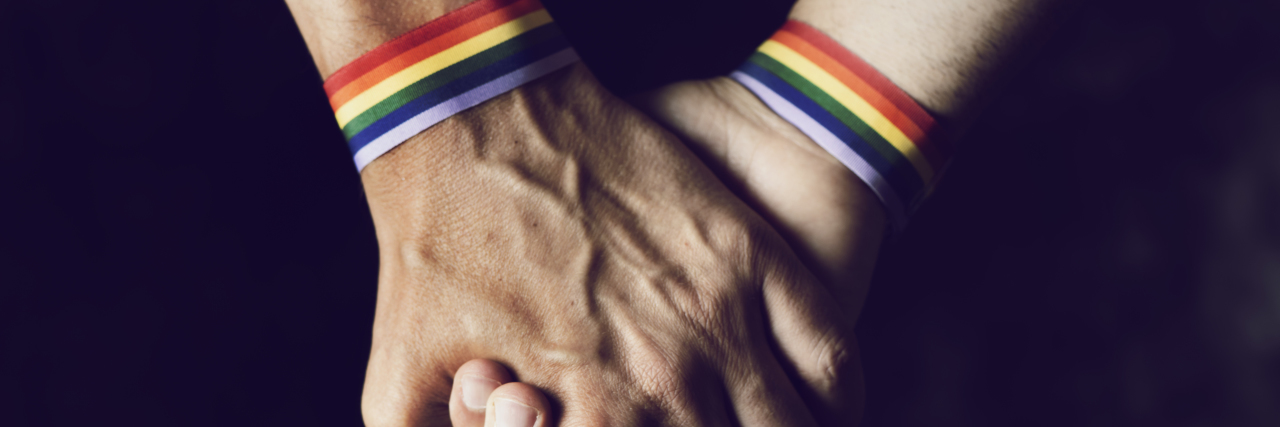If you were to ask me how I came out as queer, I would tell you the enthralling tale of how my mom found out I was queer in the middle of a Jo-Ann Fabric and Craft store. There was no large celebration, nothing planned. As a matter of fact, I didn’t even intend to come out that day. We were simply walking down the aisles when I mentioned I had a date. She followed this confession with the typical parental investigation — what is his name, does he go to school, etc. Of course, she was kind of shocked when I gave her a female name.
Contrary to what you might think, my mom handled it graciously and supported me from the get-go. When I came out as genderqueer, it was a tad more thought-out. Though it appeared to be more difficult, my mother still continued to love me. There was no crying, at least none I saw. No shouting at the top of her lungs, no threats of eternal damnation, nothing physical. However, this has not been the case for all my family. Some of my family members have since ostracized me and ignored me for several years so far. Being queer and transgender is not an easy feat.
I know what you’re thinking: how does this relate to suicide prevention? Let me explain. In their 2019 national survey on LGBTQ youth, the Trevor Project found that about 39% of LGBTQ+ youth have considered suicide at some point within the last year. What’s more, of those who participated in the survey, 54% of trans and non-binary youth stated they considered suicide.
It was also reported nearly 71% have felt hopeless for two or more consecutive weeks within the past year. These statistics continue to grow as we examine LGBTQIA+ adults. These adults are more than twice as likely to experience a mental health condition such as depression, anxiety and post-traumatic stress disorder (PTSD) than heterosexual adults. It is also true about 40% of transgender adults have attempted suicide at some time in their lives.
Everyone’s mental health matters, there’s no doubt about it. However, the particular issues LGBTQIA+ people face, especially those with intersecting identities, are unique. One of my fears, both when I started coming out in 2013 up to now, is being rejected for who I am. Being told that I am not worthy of my family’s love due to a part of myself I cannot change. I remember being scared of not having anyone to spend the holidays with or to visit during college breaks. For some, these thoughts are reality. Our youth are forced out onto the streets while the family who just kicked them out sleep in their warm beds. Trans folks are harassed with invasive questions such as, “What’s in your pants?”
Leelah Alcorn, Blake Brockington, Tyler Clementi. These are a few faces amongst a sea of people who have taken their lives. Their deaths could have been prevented.
As a matter of fact, a large factor that plays a role in the survival of LGBTQIA+ folks is the acceptance and support from their loved ones. Having family, whether they are chosen or biological, is crucial. Humans are social creatures; we are malnourished if we don’t receive the love and support that we all crave.
So, how can you support LGBTQIA+ folks, especially those close to you?
Respect pronouns and name changes. It’s important to understand while change is difficult, misgendering and deadnaming can be detrimental. Like any healthy relationship, communication is an essential and powerful aspect. Hence, listen to their hardships and prosperity like you would anyone else. Validate their experiences and let them know that you are there when they need support. Take the time to educate yourself on what life is like for an LGBTQIA+ person and learn how to become an ally for your loved one(s). Most importantly, let them know they are loved. When we are deadnamed or assaulted or murdered, it is hard to remember we are loved. Remind them they are loved and I promise you it will make a difference.
This information should not be necessary. Yet, here I am typing it because too many LGBTQIA+ lives have been lost to suicide. So, make sure to support your loved ones because you could literally be the difference in whether they live or not.
Getty image by nito100

